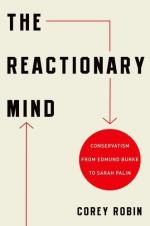|
This section contains 19,365 words (approx. 65 pages at 300 words per page) |

|
SOURCE: Peter J. Stanlis, "Burke and the Moral Natural Law," in Edmund Burke: The Enlightment and Revolution, Transaction Publishers, 1991, pp. 3-61.
In the following excerpt, Stanlis examines how Burke's concept of a moral natural law guided both his domestic political policies and his view of Parliament's affairs with the American colonies, Ireland, India, and France.
… Since "very early youth," Burke confessed in 1780 to a gentleman interested in reforming parliament, he had "been conversant in reading and thinking upon the subject of our laws and constitution, as well as upon those of other times, and other countries," and a decade before his death he stated in parliament that "he had in the course of his life looked frequently into law books on different subjects." Burke's interest in the law began at least as early as 1747, when his father entered his name at the Middle Temple. Early in 1750 Burke went...
|
This section contains 19,365 words (approx. 65 pages at 300 words per page) |

|


